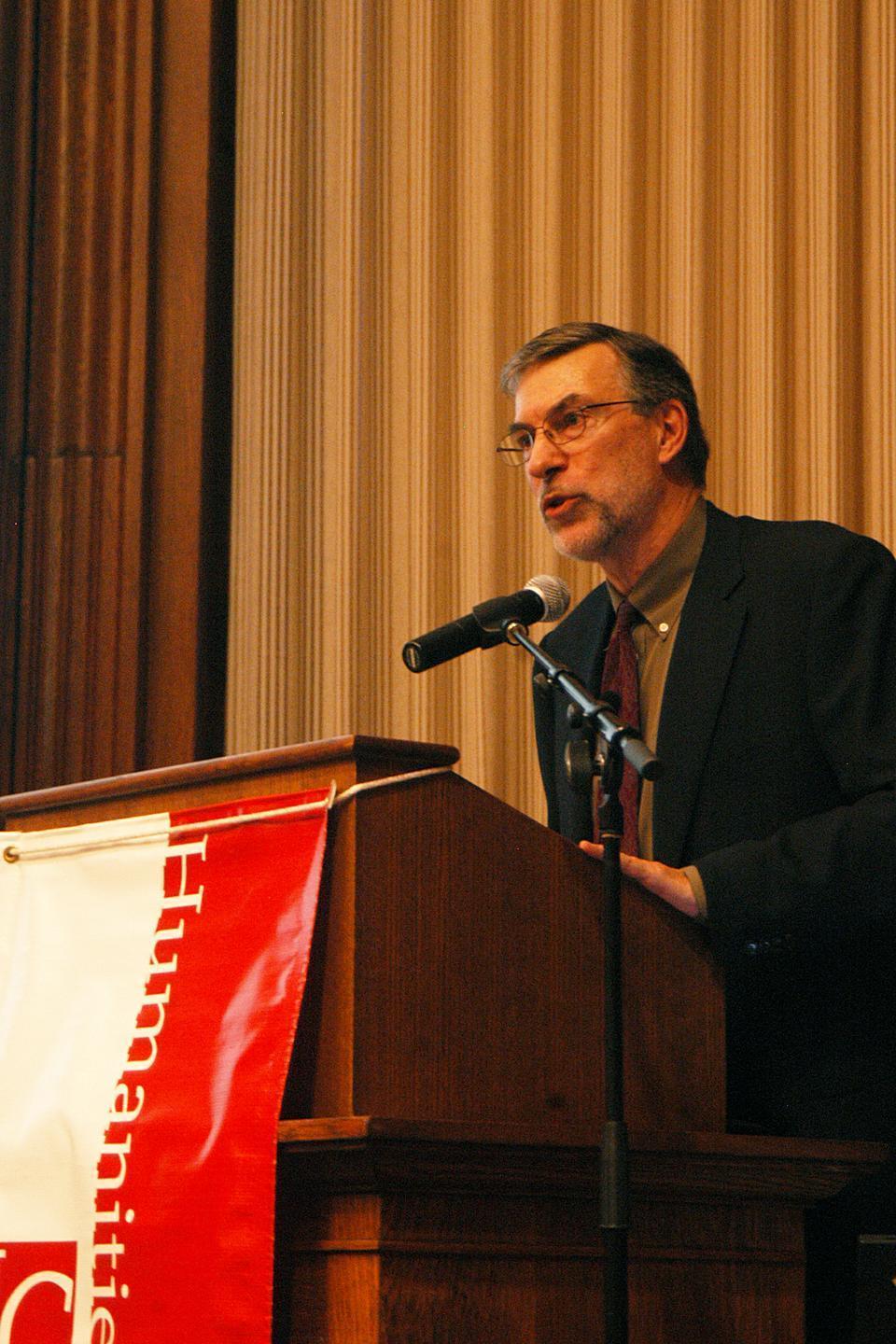
News
Nearly 200 Harvard Affiliates Rally on Widener Steps To Protest Arrest of Columbia Student

News
CPS Will Increase Staffing At Schools Receiving Kennedy-Longfellow Students

News
‘Feels Like Christmas’: Freshmen Revel in Annual Housing Day Festivities

News
Susan Wolf Delivers 2025 Mala Soloman Kamm Lecture in Ethics

News
Harvard Law School Students Pass Referendum Urging University To Divest From Israel
Geoffrey Harpham Discusses Evolution of Humanities

National Humanities Center President and Director Geoffrey G. Harpham spoke about the evolution of humanities in America to a crowded Thompson Room in the Barker Center yesterday.
Alongside Sissela Bok, a visiting fellow of the Harvard School of Public Health and the wife of former University President Derek C. Bok, and Homi K. Bhabha, director of the Humanities Center at Harvard, Harpham described the unique American incarnation of the humanities.
Bok said various cultures interpret the humanities in different ways, noting that the plurality of the word “humanities” reflects the multidimensionality of this area of study.
Speaking in a quiet, raspy voice, Harpham said the American view of humanities emerged in the United States after World War II. Harpham said that the humanities led to the development of a sense of elitism in America preceding the Cold War and the Space Race, when totalitarianism was seen as a force to be fought.
At the time of its development, the American manifestation of the humanities involved the development of liberal education, the possession of a unique moral compass, and pride in American democracy.
Harpham also said Harvard played a fundamental role during this time of intellectual change. Former Harvard President James Bryant Conant’s “General Education in a Free Society”—one of the first books published on humanities education following the end of World War II—was among the first texts to emphasize the need for humanities education programs in public schools and colleges throughout the United States.
In addition to polarizing the field of humanities for years to come, the book also helped strengthen America’s perception of its place in the world.
In fact, it seemed that Harvard dominated most of Harpham’s discussion, and he even joked at one point that the title of the event should be changed to “How Harvard Invented the Humanities.”
Harpham said in an interview after the event that he hopes to continue working closely with Harvard and other institutions to redefine the humanities. Recently, Harpham has organized collaborations between humanities scholars and scientists to answer some of the most important questions in the humanities, such as what it means to be human.
Want to keep up with breaking news? Subscribe to our email newsletter.
Most Read
- Harvard Dismisses Leaders of Center for Middle Eastern Studies
- 2 Years After Affirmative Action Ruling, Harvard Admits Class of 2029 Without Releasing Data
- Russian HMS Researcher Detained at Louisiana ICE Facility After Visa Revocation
- Harvard Agrees to a 1-Year $6 Million PILOT Agreement With the City of Cambridge
- More Than 600 Harvard Faculty Urge Governing Boards To Resist Demands From Trump
